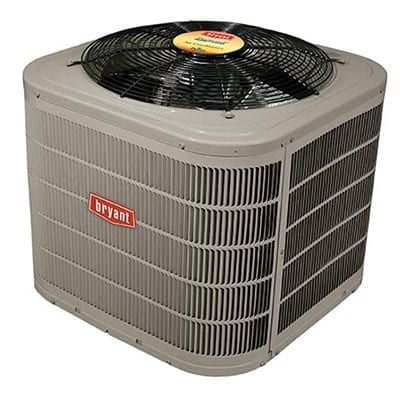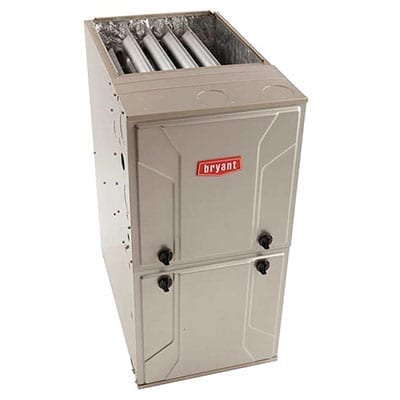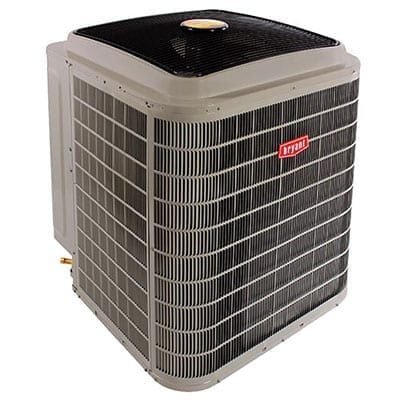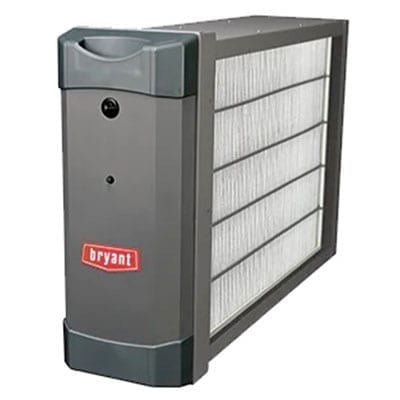Commercial HVAC for Dental Clinics
Commercial HVAC systems, including air conditioning units and air filtration systems, are vital for maintaining a comfortable and healthy environment in dental clinics and other medical facilities. These systems ensure that the air cleaner and free from contaminants, providing a safe space for patients and staff. Proper design and maintenance of an efficient HVAC system ensure optimal air quality and temperature control, directly impacting the overall performance and energy consumption of these facilities. Regular cleaning of equipment is one of the best practices for maintaining an efficient HVAC system. The efficiency of HVAC systems, including air conditioning units and air filtration, is paramount for dental clinics and medical facilities such as surgery suites to create a welcoming atmosphere while adhering to stringent health and safety standards.
Importance of Efficient HVAC Systems for Oral Health Settings
Preventing Airborne Contaminants
Efficient commercial HVAC systems, including air conditioning units and air filtration, play a crucial role in maintaining a clean and safe environment within dental clinics. These systems, equipped with air cleaners, are especially important in medical facilities. By effectively cleaning and filtering the air, these HVAC design systems help prevent the spread of bacteria and viruses, safeguarding both patients and staff from potential airborne contaminants. The evacuation and temperature control functions also contribute to maintaining a healthy and safe environment. For instance, during dental procedures that may generate aerosols, such as drilling or cleaning, an efficient HVAC system with temperature control ensures that any airborne particles are promptly removed from the air in surgery suites, reducing the risk of cross-contamination and ensuring proper conditioning and evacuation.
Moreover, with optimal ventilation provided by efficient HVAC systems in place, there is a significant reduction in the concentration of potentially harmful particles in the indoor air, creating a comfortable environment for conditioning and zoning in each room. This contributes to creating a healthier environment for everyone inside the dental office. The care provided by the dental professionals in the dental surgery suites ensures optimal dental health for patients.
Enhancing Patient Comfort
In addition to ensuring air quality and safety, efficient commercial HVAC systems also contribute to enhancing patient comfort during their visits to dental clinics. This is especially important in surgery suites and other health care occupancy areas where proper conditioning and design are crucial. The precise control over temperature and humidity levels in our surgery suites, maintained by our air conditioning units, creates an atmosphere conducive to relaxation for patients undergoing various dental treatments. Our air exchanges ensure a healthy environment for all patients in our health care facility. For example, maintaining comfortable room temperatures with efficient air conditioning systems helps alleviate any discomfort or anxiety experienced by patients in health care facilities, such as dental surgery suites, while waiting or receiving treatment.
Furthermore, proper humidity levels achieved through reliable HVAC systems can prevent dryness in the air which could cause irritation for patients’ respiratory passages or eyes during dental surgery suites occupancy. This is crucial for the conditioning of patient health care. This is particularly beneficial in dental surgery suites and other health care settings, where patient comfort is essential for successful treatment outcomes. Efficient HVAC systems, including air conditioning systems, play a crucial role in ensuring patient comfort during longer procedures.
Ensuring Proper Ventilation
Reliable commercial HVAC solutions ensure proper ventilation within oral health settings like dental clinics. These solutions are crucial for maintaining comfortable air conditioning systems and ensuring the care and safety of patients and staff. From the waiting area to the surgery suites, proper occupancy and ventilation are essential for creating a healthy and efficient environment. This efficient HVAC system ventilation not only helps maintain optimal indoor air quality but also reduces odors and prevents stagnant air from lingering within enclosed spaces. The HVAC design ensures effective conditioning for the comfort of occupants. As a result, patients visiting dental surgery suites experience improved overall comfort due to the well-designed HVAC conditioning system, which ensures fresh and well-circulated indoor air.
Efficient HVAC systems, including air conditioning, are essential for maintaining adequate ventilation in healthcare facilities. This is particularly important in dental surgery suites, where compliance with regulatory requirements and healthcare occupancy standards is crucial. Proper ventilation design ensures a safe and comfortable environment for patients and staff alike. These standards mandate specific measures be taken to ensure proper airflow rates are maintained throughout healthcare facilities like dental clinics, including surgery suites. The design of the HVAC system plays a crucial role in providing optimal air conditioning for these facilities.
HVAC Design Considerations for Dental Surgery Suites
Proper Ventilation
Dental surgery suites require proper ventilation to eliminate aerosols produced during procedures. This is why the design of air conditioning systems is crucial in maintaining a healthy environment for both patients and healthcare professionals. This is crucial for maintaining a clean and safe environment in health care facilities, dental surgery suites, and other spaces where air conditioning systems are in use. Proper design of these systems ensures the well-being of patients and staff. The HVAC design for dental surgery suites should focus on efficient air circulation to swiftly remove contaminants from the air, ensuring optimal conditioning and health care.
A well-designed dental surgery system will ensure that the waiting areas, treatment rooms, and surgical suites have separate zones with distinct airflow requirements for optimal health care and conditioning. For example, dental surgery suites may require higher air exchange rates than waiting areas in order to minimize the risk of infection transmission. This is an important consideration in the design of health care facilities, as proper conditioning plays a crucial role in maintaining a safe and sterile environment. By creating distinct zones, the air conditioning systems in the dental clinic can cater to the specific needs of each area, including surgery suites. This ensures optimal care for patients.
Proper ventilation in dental surgery suites, including the use of efficient air conditioning systems, not only ensures a healthy environment but also contributes to patient comfort and safety during dental procedures. Care is taken to maintain optimal ventilation for the well-being of patients. Conditioning and care play a significant role in preventing cross-contamination and maintaining high indoor air quality in dental surgery suites.
Noise Reduction Measures
In addition to addressing ventilation and air conditioning needs, it’s essential for HVAC systems in dental surgery suites to incorporate noise reduction measures. Excessive noise in dental surgery suites can be disruptive and uncomfortable for both patients and staff members. This is why it is important to have efficient air conditioning systems in place. Utilizing sound-absorbing materials or installing air conditioning systems designed for quiet operation can significantly reduce unwanted noise levels within dental surgery suites, these sensitive environments.
By implementing soundproofing techniques or selecting specialized air conditioning systems designed specifically for low-noise operation, such as vibration isolation mounts or acoustically lined ductwork, it’s possible to create a quieter atmosphere within dental surgery suites.
Furthermore, modern air conditioning and HVAC systems in dental surgery suites are equipped with advanced features like variable speed fans and insulated enclosures that contribute to reduced operational noise levels without compromising performance.
Enhancing Patient Experience with Optimal HVAC Solutions
Patient Comfort
Commercial HVAC systems play a crucial role in enhancing patient experience within dental clinics by providing efficient air conditioning during surgery. They create a comfortable environment in dental surgery suites, helping to alleviate patient anxiety during visits. The air conditioning systems play a crucial role in maintaining the comfort of patients. The air conditioning system in our dental surgery suites provides precise temperature control, ensuring that patients feel relaxed and at ease throughout their appointments. For instance, maintaining an optimal temperature using efficient air conditioning and HVAC systems in dental surgery suites can contribute to reducing patient stress and discomfort.
Efficient air conditioning distribution is another key aspect of commercial HVAC for dental clinics. By ensuring even airflow throughout the dental surgery suites, these conditioning systems minimize temperature fluctuations and drafts, further contributing to patient comfort. This consistent airflow helps in creating a comfortable environment in dental surgery suites where patients can receive care without being impacted by sudden changes in temperature or uncomfortable drafts. The conditioning ensures a pleasant experience for patients during their treatment.
Energy Efficiency
In addition to prioritizing patient comfort, commercial HVAC systems designed for dental clinics also focus on energy efficiency and air conditioning. These technologies are tailored to provide optimal performance in healthcare settings, such as dental surgery suites, while minimizing energy consumption. They are ideal for maintaining air conditioning and conserving energy.
For example:
-
Energy-efficient air conditioning units
-
Utilization of UV light technology for improved indoor air quality in dental surgery suites and conditioning.
These advancements not only enhance the overall functionality of the air conditioning system but also contribute to creating a sustainable and environmentally friendly approach within healthcare facilities.
Indoor Air Quality and Aerosol Management in Dental Clinics
Importance of Indoor Air Quality
Maintaining indoor air quality is vital in dental clinics due to the potential presence of aerosols containing pathogens. Proper conditioning is necessary to ensure a safe environment for patients and staff. These aerosols are generated during various dental procedures and may contain bacteria, viruses, or other contaminants in the air conditioning system. High-quality filtration systems play a crucial role in capturing these aerosols and other airborne particles, thus significantly improving indoor air quality within the clinic.
Dental professionals understand the significance of maintaining clean indoor air to ensure the health and well-being of both patients and staff. With optimal airflow management and efficient filtration systems, the risk of exposure to harmful airborne particles is minimized. This not only creates a safer environment with efficient air conditioning for everyone but also enhances patient experience during their visit to the clinic.
Maintenance of HVAC Systems
Regular maintenance of HVAC systems is essential in ensuring proper filtration and minimizing the risk of airborne contamination. By conducting routine inspections, cleaning filters, and servicing ventilation components, dental clinics can effectively manage indoor air quality. Moreover, monitoring humidity levels is crucial for maintaining optimal air conditioning. Excessive humidity can lead to microbial growth, while low humidity levels can cause discomfort for patients undergoing treatment.
Air Purification Strategies for Infection Control
HEPA Filters
Air purification systems equipped with HEPA filters are highly effective in removing airborne pathogens, significantly improving infection control in dental clinics. These air conditioning filters can capture particles as small as 0.3 microns with an efficiency of 99.97%. By trapping bacteria, viruses, and other contaminants, HEPA filters play a crucial role in maintaining clean and safe indoor air quality within the clinic.
HEPA filters are essential components of commercial air conditioning and HVAC systems for dental clinics as they help minimize the risk of cross-contamination and the spread of infectious diseases. For example, during dental procedures that generate aerosols or droplets containing microorganisms, HEPA filters work to eliminate these potentially harmful particles from the air. As a result, patients and staff are better protected against airborne infections.
Proper maintenance and regular replacement of air filtration systems incorporating HEPA filters are vital to ensure their optimal functionality. This includes adhering to manufacturer recommendations for air conditioning filter replacement schedules based on factors such as usage frequency and environmental conditions within the clinic.
UV Germicidal Irradiation
In addition to HEPA filtration, UV germicidal irradiation systems serve as an extra layer of defense against airborne pathogens in dental clinics. These systems utilize ultraviolet light to neutralize viruses and bacteria present in the air by disrupting their DNA structure, rendering them inactive and unable to reproduce.
When strategically installed within HVAC ducts or directly integrated into air purifiers, UV germicidal irradiation technology complements HEPA filtration by targeting microorganisms that may have evaded capture by the filters alone.
Dental clinics benefit from this dual approach to air purification since it addresses both particulate matter (handled by HEPA filters) and biological contaminants (addressed through UV germicidal irradiation). As a result, these combined strategies, including the use of air conditioning, contribute significantly to maintaining a hygienic environment conducive to patient health and safety.
Strategic Placement
Proper placement of air purifiers is crucial for optimizing their effectiveness in reducing airborne contaminants within dental clinics. Placing air conditioning units near areas where aerosol-generating procedures commonly occur can help mitigate potential risks associated with aerosolized pathogens spreading throughout the facility.
Strategic placement also involves considering airflow patterns within each specific clinic space so that air purifiers can efficiently circulate clean air while capturing contaminated particles effectively. Ensuring adequate coverage across waiting areas, treatment rooms, laboratories, sterilization zones is essential for comprehensive infection control measures through enhanced indoor air quality management.
Filtration Systems Critical to Dental Clinic Safety
Importance of High-Efficiency Air Filters
High-efficiency air filters play a crucial role in commercial HVAC for dental clinics by capturing and removing harmful particles from the air. These filters are essential components that help maintain clean and safe indoor air quality within the clinic’s premises. By efficiently trapping contaminants, such as bacteria, viruses, and other airborne particles, high-efficiency air filters contribute to creating a healthier environment for both patients and staff.
In dental facilities, where infection control is paramount, the use of advanced air conditioning and filtration technologies becomes even more critical. The presence of aerosol-generating procedures during various dental treatments increases the risk of airborne pathogen transmission. Therefore, air conditioning filtration systems must be capable of effectively capturing these potentially hazardous particles to minimize the spread of infections within the clinic setting.
Utilizing high-efficiency air filters not only promotes a safer environment but also supports compliance with regulatory standards related to indoor air quality in medical facilities. Regular replacement and maintenance of these air conditioning filters are imperative to ensure optimal filtration efficiency. Neglecting air conditioning filter maintenance can lead to decreased performance and compromised safety measures within the facility.
Advanced Filtration Technologies
Implementing advanced filtration technologies, such as electrostatic filters, can significantly enhance protection against airborne contaminants in dental clinics’ HVAC systems. Electrostatic filters utilize an electric charge to attract and capture particulate matter suspended in the air more effectively than conventional mechanical filtration methods.
These innovative air conditioning filtration systems offer improved efficiency in trapping smaller particles that may otherwise evade standard filters. By incorporating electrostatic technology into their HVAC systems, dental clinics can elevate their infection control measures while maintaining consistent airflow throughout their facilities.
Moreover, some commercial HVAC manufacturers have introduced specialized air conditioning filter options designed specifically for medical settings like dental clinics. These tailored air conditioning solutions address the unique filtration needs of healthcare environments by providing enhanced protection against bioaerosols generated during procedures like evacuation or extraction processes commonly performed in dental practices.
Commercial HVAC Installation and Repair Services
Importance of Professional Installation
Proper installation of commercial HVAC systems, including air conditioning, is crucial for ensuring efficient functionality and compliance with industry standards. When dental clinics invest in professional installation services, they can be confident that their HVAC system will be set up correctly, providing optimal heating, ventilation, and air conditioning. This not only creates a comfortable environment for patients and staff but also contributes to maintaining the indoor air quality essential for a healthcare setting like a dental clinic.
Professional air conditioning installation reduces the risk of malfunctions or breakdowns due to faulty setup. For example, qualified technicians can ensure that the air conditioning units are appropriately sized for the clinic’s space, preventing unnecessary strain on the system. By engaging professionals for air conditioning installation, dental clinics can avoid potential issues caused by amateur installations or improper sizing.
Benefits of Regular Maintenance and Prompt Repairs
Regular maintenance plays a vital role in prolonging the lifespan of air conditioning and HVAC equipment in dental clinics. Scheduled air conditioning service inspections allow technicians to identify any minor issues with the air conditioning system before they escalate into major problems. This proactive approach helps prevent unexpected breakdowns that could disrupt clinic operations and inconvenience patients.
Moreover, prompt repair services are essential when issues do arise with commercial HVAC systems. Experienced conditioning engineers possess the expertise to diagnose complex problems accurately and implement effective solutions swiftly. Timely repairs not only minimize downtime but also contribute to cost savings by preventing further damage that may occur if issues are left unaddressed.
Expertise in Diagnosing Complex Issues
Experienced professionals specializing in commercial HVAC systems bring valuable expertise to diagnosing and resolving complex issues specific to dental clinics’ requirements. These specialists understand the unique demands placed on HVAC systems within healthcare facilities such as maintaining precise temperature control and ensuring proper ventilation.
For instance, should an issue arise related to airflow regulation or temperature consistency within different areas of a dental clinic, skilled technicians can analyze these challenges comprehensively based on their knowledge of commercial HVAC systems tailored for medical environments. Their ability to address specialized concerns sets them apart from general service providers who may lack insight into healthcare-specific requirements.
Types and Maintenance of Dental Clinic HVAC Systems
Common Types
Commercial HVAC systems for dental clinics come in various types, each with its own advantages. The most common ones include split systems, rooftop units, and variable refrigerant flow (VRF) systems. Split systems are popular for their flexibility and energy efficiency. Rooftop units are space-saving solutions that offer easy access for maintenance. VRF systems provide precise control over temperature and airflow in different clinic areas.
It’s essential to consider factors such as the size of the clinic, layout, budget constraints, and specific heating or cooling requirements in different areas.
Regular Maintenance
Maintaining optimal indoor air quality is crucial in a dental clinic to ensure the comfort of patients and staff while preventing the spread of airborne contaminants. Routine maintenance tasks play a key role in achieving this goal. Filter replacement is an essential part of maintaining clean indoor air by trapping dust, allergens, and other particles that can compromise air quality.
In addition to filter replacement, regular coil cleaning is necessary to prevent mold growth due to moisture accumulation on coils. This helps maintain efficient heat transfer within the system while preventing potential health hazards associated with mold exposure.
Moreover, conducting periodic inspections of ductwork ensures that there are no blockages or leaks that could compromise airflow or contribute to poor indoor air quality. Identifying these issues early on prevents them from escalating into more significant problems that could disrupt daily operations at the clinic.
Scheduled Inspections
Scheduled inspections conducted by qualified HVAC professionals help identify potential issues before they escalate into costly repairs or system breakdowns. These proactive measures ensure uninterrupted operation of the HVAC system within the dental clinic setting.
Implementing an Indoor Air-Quality Plan in Dental Offices
Assess Potential Contamination Sources
Developing an indoor air-quality plan for dental clinics involves assessing potential sources of contamination. These sources can include chemicals from cleaning products, aerosolized particles generated during dental procedures, and biological contaminants like bacteria and viruses. By identifying these sources, the clinic can take targeted measures to reduce their impact on indoor air quality.
Implementing appropriate mitigation measures is crucial for maintaining a healthy environment within the dental office. For example, using high-efficiency particulate air (HEPA) filters in the HVAC system can help trap airborne particles that may compromise indoor air quality. Ensuring proper ventilation in areas where chemical disinfectants are used can minimize their accumulation in the air.
Regular monitoring of indoor air quality parameters, such as temperature, humidity levels, and particle concentrations is essential for maintaining a healthy environment within dental offices. Monitoring these parameters allows clinic staff to promptly address any deviations from acceptable ranges that could potentially impact indoor air quality.
For instance:
-
Installing carbon dioxide sensors to monitor occupancy levels and adjust ventilation accordingly.
-
Utilizing humidity monitors to ensure that relative humidity remains within recommended levels to prevent mold growth.
Staff Training on Ventilation Practices
Staff training on proper ventilation practices and infection control measures is crucial for effective implementation of an indoor air-quality plan. The dental team should be educated about best practices related to controlling contamination sources and optimizing airflow within different rooms of the clinic.
Training sessions can cover topics such as:
-
Understanding how HVAC systems work to maintain good indoor air quality.
-
Implementing zoning strategies by adjusting airflow based on room occupancy or specific activities.
-
Adhering to infection control standards when performing various dental procedures while considering their potential impact on indoor air quality.
Conclusion on HVAC Essentials for Dental Clinics
Efficient HVAC systems are imperative for maintaining a safe and comfortable environment in dental clinics. From controlling indoor air quality to managing aerosols, the design and maintenance of these systems play a crucial role in ensuring patient safety and satisfaction. Implementing a comprehensive indoor air-quality plan and investing in appropriate filtration and purification systems are essential steps for dental clinic owners and managers to prioritize.
In conclusion, prioritizing HVAC considerations is not just about regulatory compliance; it directly impacts the well-being of both patients and staff. By staying informed about the latest technologies and best practices in commercial HVAC for dental clinics, professionals can ensure that their facilities provide optimal indoor air quality and comfort. This commitment to excellence in HVAC solutions will ultimately contribute to the overall success and reputation of dental practices.
Frequently Asked Questions
What are the key HVAC design considerations for dental surgery suites?
Efficient ventilation, temperature control, and air filtration are crucial in dental surgery suites to maintain a sterile environment. The HVAC system should be designed to minimize airborne contaminants and ensure proper airflow to safeguard both patients and staff.
How can commercial HVAC systems improve indoor air quality in dental clinics?
Commercial HVAC systems can enhance indoor air quality by effectively filtering out pollutants, controlling humidity levels, and providing adequate ventilation. These measures help reduce the risk of airborne pathogens and create a healthier environment for patients and staff.
Why is air purification important for infection control in dental clinics?
Air purification technologies such as UV germicidal irradiation and high-efficiency particulate air (HEPA) filters play a vital role in reducing the spread of infectious aerosols within dental clinics. These systems help mitigate potential health risks associated with airborne pathogens.
What types of filtration systems are critical for ensuring safety in dental clinics?
High-quality HEPA filters, along with activated carbon filters, are essential components of filtration systems in dental clinics. They effectively capture microscopic particles, odors, and volatile organic compounds (VOCs), contributing to a safer indoor environment.
How can dental offices implement an effective indoor air-quality plan?
Dental offices can implement an effective indoor air-quality plan by conducting regular maintenance of HVAC systems, using appropriate filtration technology, monitoring ventilation rates, managing humidity levels, and integrating air purification strategies. This comprehensive approach helps maintain clean and healthy indoor air.
Commercial HVAC efficiency assessment
Related Information
Commercial HVAC for Employment Agencies
Commercial HVAC for Dry Cleaners
Commercial HVAC for Driving Schools
Commercial HVAC for Distilleries
Commercial HVAC for Day Spas
Commercial HVAC for Dance Studios
Commercial HVAC for Cycle Shops
Commercial HVAC for Custom Framing Shops
Commercial HVAC for Currency Exchanges
The Primary Services Provided By Our Local HVAC Company
Areas We Service
Click on the area below to see what your neighbors are saying about their recent experiences with our company.
Our Locations
14913 SE Kellogg Ave
Milwaukie, OR 97267, USA
4409 SE 24th Ave, Suite 35
Portland, OR 97202, USA




